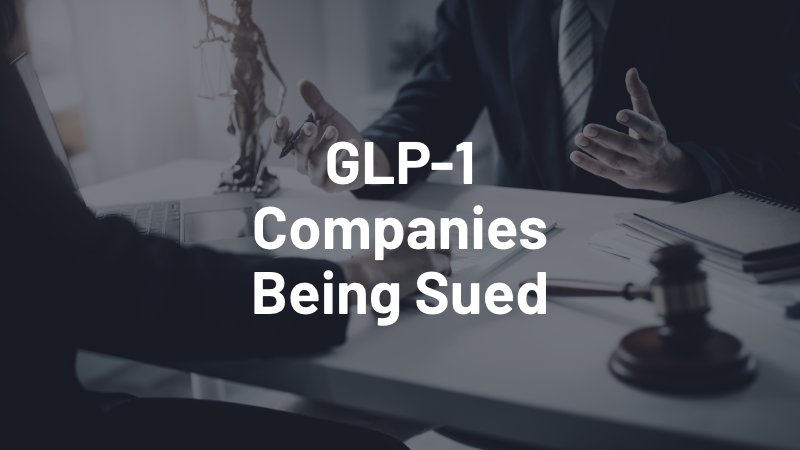What GLP-1 Companies Are Being Sued?
GLP-1 receptor agonists like Ozempic and Wegovy have transformed diabetes and weight management treatment. However, their rapid rise in popularity has been shadowed by serious complications that some patients never saw coming.
Across the country, patients have experienced severe gastrointestinal problems, including stomach paralysis and intestinal blockages that require emergency surgery. Now, they are taking legal action against the GLP-1 companies that failed to warn them about these dangerous side effects.

Why Are Patients Filing Lawsuits Against GLP-1 Manufacturers?
Pharmaceutical manufacturers are required to thoroughly test their drugs for safety and potential side effects. They must also warn patients and healthcare providers about known risks and serious adverse reactions that could occur during treatment. However, the GLP-1 lawsuits claim that these companies failed to adequately disclose the risk of severe gastrointestinal complications, leaving patients unaware of potentially life-threatening side effects.
Many people developed gastroparesis (a condition where the stomach muscles stop working properly and can’t move food through the digestive system) or intestinal blockages after taking these drugs. These complications can cause severe nausea, vomiting, and abdominal pain that requires emergency medical treatment. Some patients have needed surgery or long-term medical care to manage these serious digestive problems.
Former GLP-1 patients claim the companies knew these problems could happen but did not put proper warnings on the labels or tell doctors about the risks. Because patients were not warned, they couldn’t make informed choices about whether to take these medications or what symptoms to watch for.
Companies Involved in GLP-1 Litigation
Major pharmaceutical companies are facing legal challenges over their GLP-1 medications, notably Novo Nordisk and Eli Lilly and Company. These weight loss drug lawsuits target some of the most widely prescribed drugs in this category, including:
- Ozempic: This injectable medication was designed to improve blood sugar control in adults with Type 2 diabetes while also supporting weight loss efforts. Ozempic was created by Novo Nordisk.
- Wegovy: Also manufactured by Novo Nordisk, this medication received approval specifically for chronic weight management in adults with obesity or weight-related health conditions.
- Trulicity: This once-weekly injectable, manufactured by Eli Lilly, helps control blood sugar in Type 2 diabetes patients and aims to reduce major cardiovascular events in those with existing heart disease.
- Rybelsus: As the first oral GLP-1 medication, this drug offered patients an alternative to injections for managing Type 2 diabetes. Rybelsus is manufactured by Novo Nordisk.
- Mounjaro: This newer medication combines GLP-1 and GIP receptor properties to help control blood sugar and support weight management in Type 2 diabetes patients. Mounjaro is manufactured by Eli Lilly and Company.
Do You Qualify for a GLP-1 Lawsuit?
To qualify for a GLP-1 lawsuit, you must meet certain requirements. First, you must have been diagnosed with a condition associated with GLP-1 usage, such as:
- Gastroparesis
- Stomach paralysis
- Gastric stasis
- Bowel obstruction
- Intestinal blockage
- Ileus obstruction
Your medical records need to show you were treated or hospitalized for one of these problems. You also need proof that you actually took one of the brand-name GLP-1 drugs. This could be your prescription bottles, pharmacy records, or medical records showing your doctor prescribed Ozempic, Wegovy, Trulicity, Mounjaro, or Rybelsus.
The only way to know if you have a valid case is to speak with a lawyer currently representing patients in GLP-1 lawsuits. After seeking medical care for your condition, reach out to a GLP-1 lawsuit attorney and schedule a free consultation to discuss your legal options.
